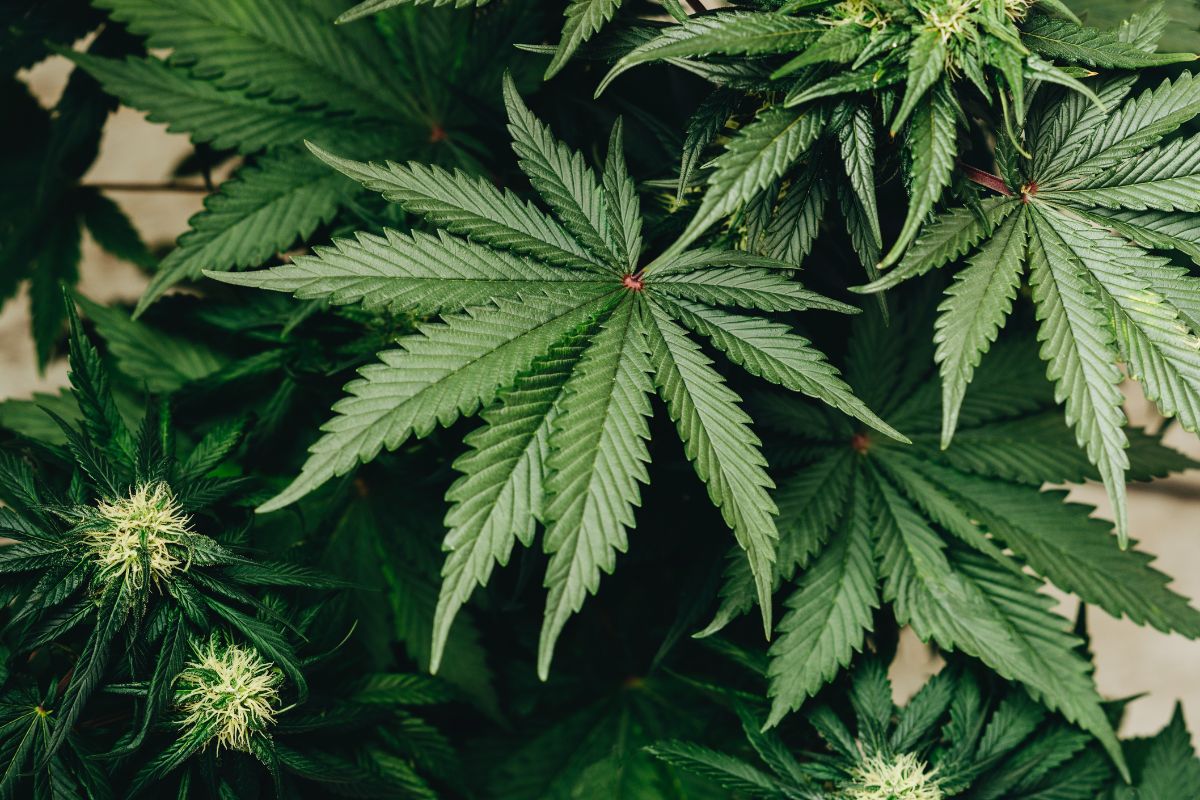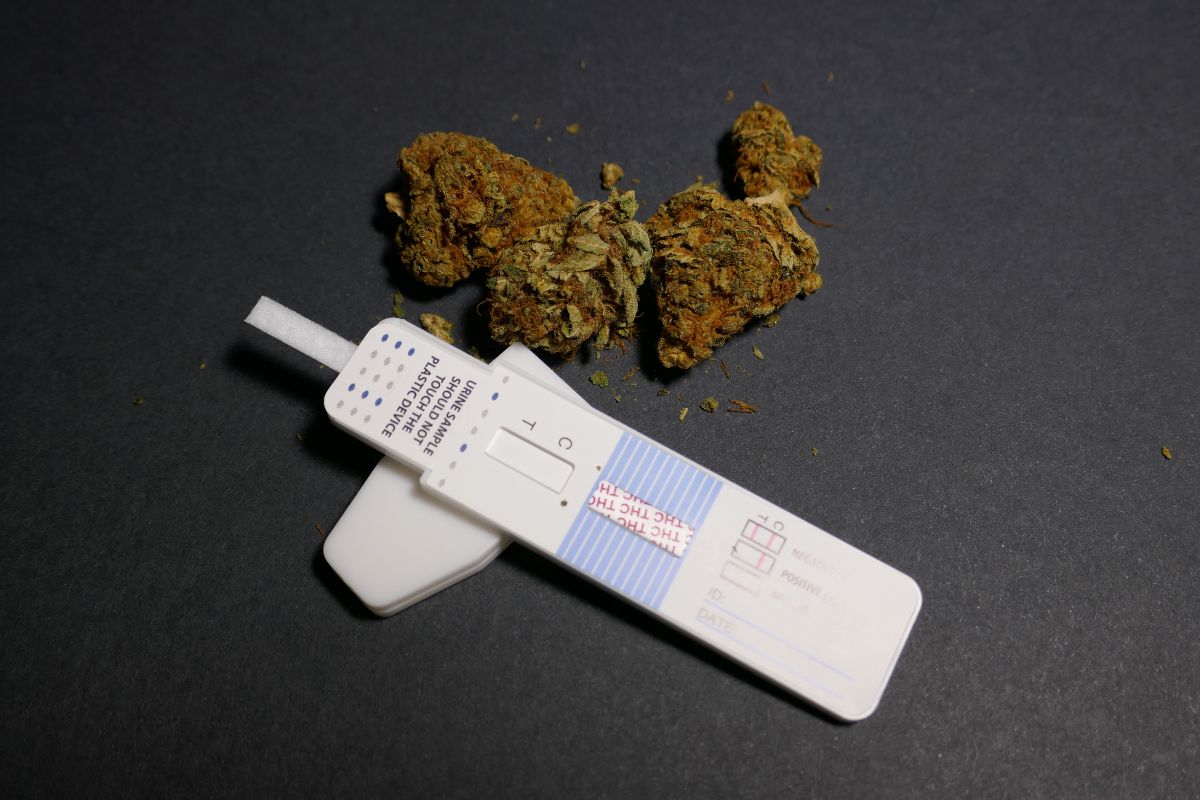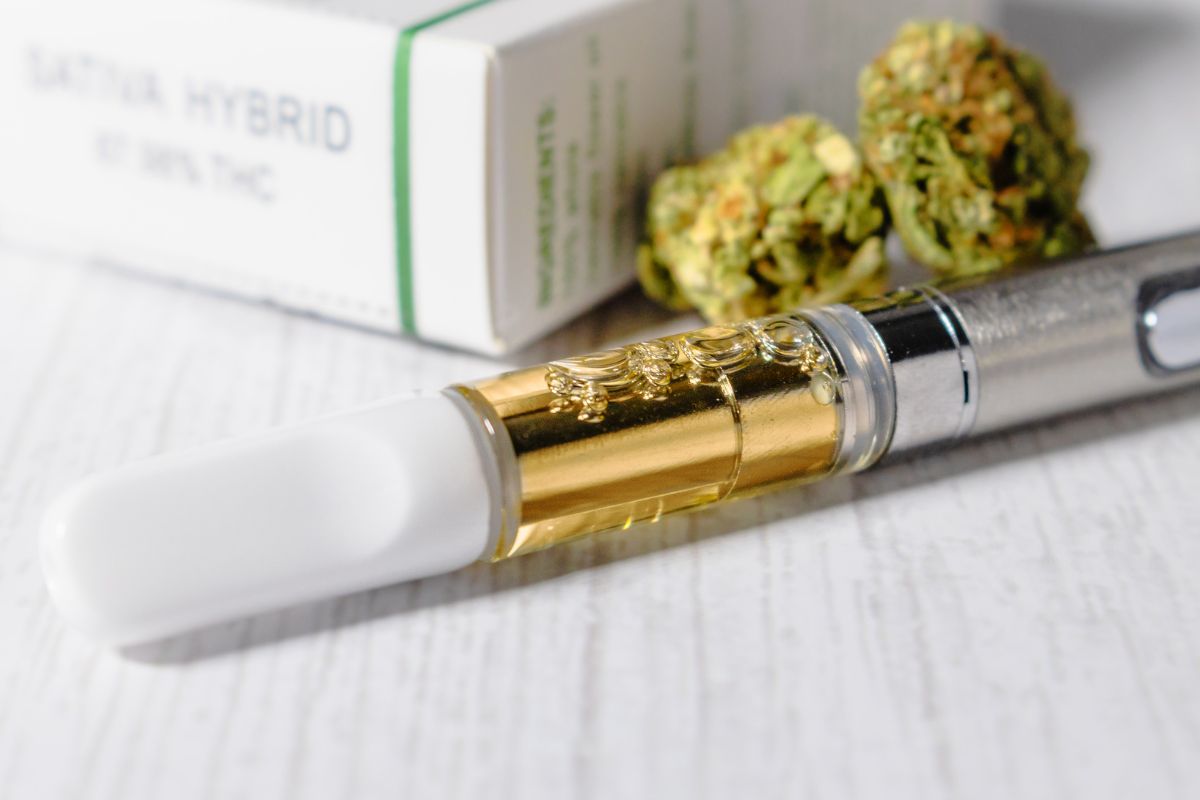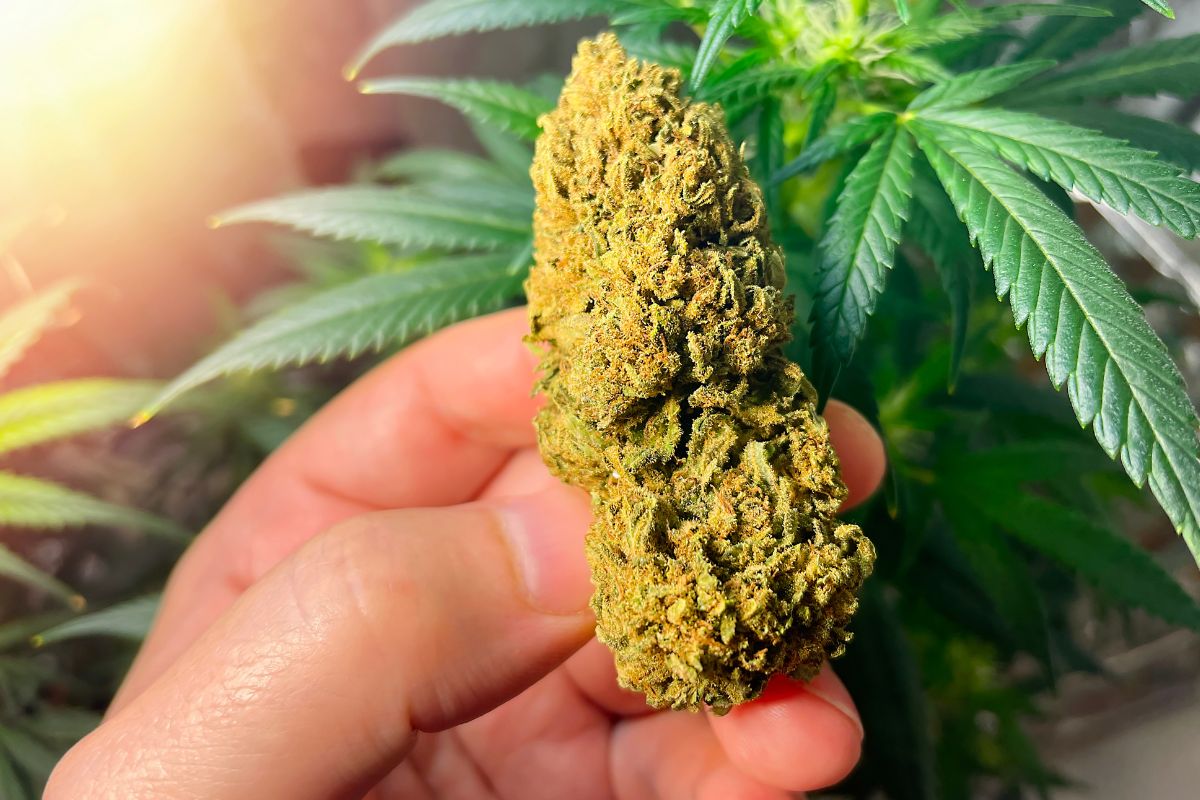Cannabis has plenty of effects on our life – some good, and some bad. There’s no guarantee that it will go either way and how cannabis affects you will depend on a variety of factors.
But how exactly does consuming cannabis affect your health, and does this affect your lifespan and quality of life?

Today, we’ll be answering a number of common questions about cannabis and human health, and exploring the potential benefits and risks of consuming it. Stay tuned to learn more!
Is Weed Good For Anxiety?
Cannabis has been branded something of a miracle treatment. Each day, we hear a new story about how cannabis has helped someone manage their everyday life, either by easing the pain of physical illnesses or making mental health issues like anxiety, more bearable.
The truth is, cannabis DOES work for many anxiety sufferers. Some people with anxiety may experience a significant reduction in their symptoms once they start using cannabis. This can be in any form, including edibles, joints, or blunts (Also check out Are Blunts Bad For Your Health?).
Cannabis can make anxiety users feel significantly more relaxed and less anxious – but why?
The main component in cannabis is its cannabinoids. Cannabinoids have a direct impact on the brain’s neurotransmitters and the receptors that play a big role in regulating our mood and anxiety levels.
Both Tetrahydrocannabinol (THC) and Cannabidiol (CBD) have the biggest roles to play here. THC can produce a sense of euphoria and relaxation that can dampen the effects of anxiety, and CBD may have more subtle, and physical, effects.
Unfortunately, although weed can help some anxiety sufferers, not everyone has the same experience. Many users may experience elevated anxiety levels when consuming cannabis, especially if the THC levels in the weed are significantly high.
If you consume too much cannabis at once, you may also experience increased anxiety or panic attacks. This can happen to users with pre-existing anxiety disorders, and those without.
Ultimately, not all strains are built the same. While some may help you take the edge off and send you into a totally relaxed state, others may make you feel more anxious, paranoid, and overwhelmed.
This is why it’s important to talk to a healthcare professional or budtender so you can find the right strain to suit your needs and preferences.
What Are The Side Effects Of Medical Weed?
It’s no secret – weed has an abundance of potential health benefits. As the interest in medical marijuana continues to grow, more and more users are exploring cannabis-based treatments for their physical and mental health issues.
In states where cannabis is legal, it can be prescribed for either type of ailment, depending on your symptoms, quality of life, and the regulations in your area.
Medical cannabis is thought to have the following benefits:
- Alleviating pain
- Reducing anxiety and depression
- Increasing appetite
- Improving sleep quality
- Managing symptoms associated with neurological disorders
- Alleviating symptoms associated with chemotherapy and other cancer treatments
Sounds great, right? Well, while medical cannabis does have some pretty astounding benefits for its users, it doesn’t come without its side effects. The side effects of medical cannabis can range from mild to severe and can include:
- Red eyes
- Dry mouth
- Increased heart rate
- Low blood pressure
- Impaired memory
- Reduced concentration
- Drowsiness and dizziness
- Irritated lungs and increased phlegm production
- If you’re smoking cannabis regularly, long-term use can even lead to lung infections and chronic bronchitis
Some users can also experience unpleasant psychological side effects such as paranoia, anxiety, and even psychosis, especially if medical cannabis is consumed consistently at high doses.
Those with a history of mental health conditions should take extra care when consuming mental cannabis, as in some cases, it can exacerbate their symptoms.
In some cases, using medical cannabis can even lead to dependency and addiction. Users with a history of substance abuse or addictive personalities may be at higher risk of becoming dependent on cannabis.
This can also lead to unpleasant withdrawal symptoms such as insomnia, irritability, and an extreme lack of appetite.
This is why it’s so important to talk to a licensed medical professional before starting your treatment. Cannabis can have some truly astounding medical benefits, however, it can also cause physical and emotional issues in some users.
Ensure you understand both the risks and benefits before starting treatment, and discuss your needs in-depth with a healthcare provider before you begin.
Does Weed Make You Gain Weight?

Cannabis contains an abundance of compounds that can affect the body in different ways. There’s one particular myth about weed that has stood the test of time – weight gain. Many still believe that using cannabis can cause weight gain, but this isn’t entirely true.
The relationship between cannabis and weight gain is complex. However, cannabis can lead to an increased appetite which may contribute to weight gain if you struggle to eat in moderation.
THC is the main psychoactive compound responsible for an increase in appetite. THC can bind the cannabinoid receptors together in your brain, which then triggers the release of a hormone that will stimulate hunger.
In other words, the munchies are real! This may make you crave particularly high-calorie and high-fat foods, which if eaten regularly with minimal exercise and balance, could lead to weight gain.
There is also evidence to suggest that cannabis can have an effect on our metabolism.
Cannabis users are thought to have higher fasting insulin levels (a strong indicator of insulin resistance), which is thought to lead to weight gain and may be responsible for other health issues, including diabetes.
However, not all cannabis users will gain weight. In fact, some may lose it. Whether you pile on the pounds while smoking up will depend on a variety of factors, including your lifestyle, genetics, and how much cannabis you use.
In other words, it may not be directly responsible for your weight gain, but it can increase your appetite and lead to an increase in weight over time.
If you’re about to start taking medical cannabis, you should be aware of these factors, and make an effort to maintain a healthy, balanced lifestyle while taking medical cannabis.
Just a few simple lifestyle changes may determine whether or not you gain weight during your treatment.
What Is A Stoner Personality?
Have you heard of the stoner personality?
The stoner personality is something we talk about often, but what exactly is it?
Well, a ‘stoner personality’ is a term used to refer to the behaviors and personality traits that are often associated with regular cannabis users.
However, this label isn’t always entirely accurate, and it can be an unfair representation of many users who don’t exhibit such traits.
Users who have a supposed ‘stoner personality’ are said to have the following traits:
- Apathy
- Lack of motivation
- Lethargy
- Laziness
- May be more creative and introspective
In other words, a user with a stoner personality may represent the typical ‘couch potato’ we associate with cannabis use.
They may seem lazy and unmotivated, be a big procrastinator, and prefer to be more creative with their time, potentially neglecting other important responsibilities in their life.
Just because you consume cannabis, doesn’t mean you have a stoner personality. There are many factors that may contribute to this personality type, and it’s not observed among all cannabis users.
Some factors that can affect the development of this personality include genetics, existing personality type, how much cannabis you consume, and your individual experiences.
It’s thought that some users with a stoner personality type may have a predisposition toward these types of behaviors due to a collection of neurological and genetic factors.
However, this has not been confirmed. Some environmental factors may also play a role, including childhood experiences and trauma.
The effects of having a stoner personality may vary. In some cases, it can be a positive. Users may become more relaxed and positive in everyday life, and if they work in creative industries or have creative hobbies, they may flourish.
However, some users can struggle with this personality type and may suffer from an extreme lack of motivation and responsibility.
Some users may even experience more mental health issues such as depression and anxiety, especially if they’re consuming cannabis in large quantities.
The stoner personality can be a complex and controversial topic, however, it doesn’t apply to everyone who consumes cannabis, and it isn’t always negative.
Final Thoughts
Cannabis is celebrated for its abundance of potential health benefits. However, it doesn’t come without its risks.
While cannabis can have a profoundly positive impact on some users’ lives, it can be detrimental to others.
It’s unclear whether cannabis can make you live longer, and ultimately, it may depend on your lifestyle, and how your mind and body react to consuming it.
If you maintain a healthy, active lifestyle while consuming cannabis and you have no negative side effects, you will continue to lead a positive and healthy lifestyle. However, the development of some mental and physical health issues could impact your quality of life.
Always discuss your needs with a qualified healthcare provider before starting treatment.
- 5 Best Weed T-Shirts For Women - June 26, 2023
- What To Wear To A Cannabis Café: 10 Awesome Options - June 26, 2023
- What Is Stoner Girl Clothing? All You Need To Know - June 26, 2023










